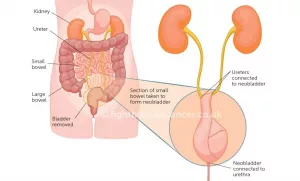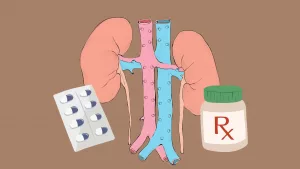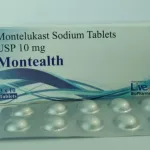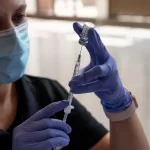Hey there! If you’ve ever wondered whether Medicare will foot the bill when you need to see a urologist, you’re in the right place. The short answer is yes—Medicare Part B covers most outpatient urology visits, and Part A steps in when you’re admitted to the hospital. But the details matter, especially if you’re on a Medicare Advantage plan that might ask for a referral or keep you tied to an in‑network provider. Let’s walk through everything you need to feel confident, avoid surprise bills, and get the care you deserve.
Medicare Coverage Overview
What Part B Actually Pays For
Think of Part B as your outpatient safety net. It covers office visits, diagnostic tests (like PSA screenings or kidney‑stone imaging), and procedures done in a clinic or ambulatory surgery center. As long as the urologist accepts Medicare assignment, you’ll typically pay a 20 % coinsurance after you meet the annual deductible. According to Medicare.org, this includes everything from a routine bladder check‑up to a cystoscopy.
When Part A Takes Over
Part A is the part that kicks in during a hospital stay. If you need an inpatient surgery—say a TURP (transurethral resection of the prostate) or a prostatectomy—Part A covers the room, board, and the surgical services. The same applies if you’re admitted for a post‑op stay at a skilled‑nursing facility.
Medicare Advantage (Part C) Nuances
Many folks opt for a Medicare Advantage (MA) plan because it bundles Part A, Part B, and often prescription drug coverage into one. The catch? Some MA plans, especially Health Maintenance Organizations (HMOs), require a primary‑care referral before you can see a specialist like a urologist. Preferred Provider Organizations (PPOs) are usually more relaxed. HelpAdvisor notes that while Original Medicare doesn’t need a referral, most HMOs do.
Do You Need a Urologist Referral Medicare?
In short: not for Original Medicare, yes for many Medicare Advantage HMOs. If your plan is a PPO or a Private Fee‑for‑Service (PFFS) plan, you might be able to book an appointment directly. Always double‑check your Summary of Benefits to avoid an unexpected denial.
Finding Your Urologist
How to Spot an In‑Network Urologist Medicare
Start at the Medicare Provider Search tool. Filter by “accepts assignment” and by specialty “Urology.” The results will show you providers who are in‑network for your specific plan. If you’re on a Medicare Advantage plan, you’ll need to use that plan’s own directory, which often labels providers as “in‑network” or “out‑of‑network.”
Checking Credentials & Experience
It’s not just about the network; you want a urologist who knows their stuff. Look for board certification, the number of Medicare beneficiaries they’ve served, and patient‑experience scores. For example, Dr. Rajen P. Butani, a urologist in New Jersey, served 912 Medicare beneficiaries with an average age of 73 years—information you can find on the CMS provider data page. Knowing that a doctor regularly treats patients in your age range adds a layer of comfort.
Real‑World Story: The Power of a Referral
Meet Linda, a 71‑year‑old who kept getting recurring urinary tract infections. She thought she could just book a urologist directly, but her Medicare Advantage HMO required a referral. After a quick call to her primary‑care doctor, she got the referral, booked an appointment, and discovered she had a small bladder stone that was easily removed. The referral saved her a $200 out‑of‑pocket surprise and got her the right treatment faster.
Services That Are Covered
Common Diagnoses & Their Medicare Codes
Below is a quick cheat sheet. Knowing the ICD‑10 and CPT codes can help you verify that a claim is being billed correctly.
| Condition | ICD‑10 Code | Typical CPT(s) |
|---|---|---|
| Benign Prostatic Hyperplasia (BPH) | N40.1 | 52500 (Uroflowmetry), 52441 (Cystourethroscopy with implant) |
| Kidney Stones | N20.0 | 52356 (Ureteroscopy), 72192 (CT abdomen/pelvis) |
| Prostate Cancer | C61 | 77012 (MRI pelvis), 76942 (Ultrasound prostate) |
Durable Medical Equipment & Supplies
Medicare covers catheters, external urinary collection devices, and even penile prostheses when they’re medically necessary. If a physician writes a “medical necessity” letter, the claim usually sails through. Always ask your urologist to document why a device is needed—you’ll thank them later.
Specialty Procedures: UroLift, Greenlight Laser, Rezum
These minimally invasive treatments for BPH have become popular because they spare you from major surgery. Medicare Part B covers them at an 80 % allowance after the deductible; you’re on the hook for the remaining 20 % coinsurance. MyPlanAdvocate explains that if the procedure is performed outpatient, you only pay the Part B coinsurance. If it’s done during an inpatient admission, Part A will handle most of the cost.
What Medicare Doesn’t Cover
Cosmetic urology (like elective penile implants without a medical reason) and over‑the‑counter supplements are out of pocket. Also, experimental procedures that haven’t been recognized by CMS won’t be reimbursed—always ask your doctor if a treatment is “Medicare‑approved.”
Managing Out‑of‑Pocket Costs
Coinsurance & Deductible in Plain English
Imagine your Part B deductible is $226 (2024 figure). Until you hit that amount, Medicare won’t start paying its 80 % share. After you’ve met the deductible, each urologist visit will cost you roughly 20 % of the Medicare‑allowed amount.
Here’s a quick example:
| Service | Medicare Allowed ($) | Your Coinsurance (20 %) | Total Out‑of‑Pocket |
|---|---|---|---|
| Office Visit (CPT 99213) | 150 | 30 | $30 |
| Cystoscopy (CPT 52000) | 350 | 70 | $70 |
| UroLift Procedure (CPT 52441) | 4,800 | 960 | $960 |
Adding those up, you’d pay $1,060 for this bundle of services after meeting your deductible.
What To Do If a Claim Is Denied
First, don’t panic. Grab the Explanation of Benefits (EOB) and see why Medicare turned it down—often it’s a missing referral or a coding typo. Then:
- Contact the urologist’s billing office and ask them to correct the code.
- Submit a “redetermination” request to Medicare (you have 60 days).
- If still denied, you can appeal to an Administrative Law Judge.
Extra Help & Medicare Savings Programs
If your income is below 125 % of the Federal Poverty Level, you may qualify for the “Extra Help” program, which can waive the Part B deductible and reduce coinsurance. State‑run Medicare Savings Programs work similarly. It’s worth a quick call to your State Health Insurance Assistance Program (SHIP) to see if you qualify.
Tools for Transparent Pricing
CMS’s “coverage & cost” estimator lets you plug in a CPT code and see what Medicare typically pays. For prescription meds related to urology (like tamsulosin), GoodRx offers price comparisons that can shave off a few dollars.
Balanced Benefits & Risks
Let’s step back and look at the big picture. The upside of Medicare is clear: you gain access to a specialist without crushing financial stress, and the system’s built‑in checks (like prior authorization for certain procedures) protect you from unnecessary care. The downside? Navigating referrals, in‑network lists, and potential surprise bills can feel like solving a puzzle.
But here’s the good news—once you know where to look, it’s not that scary. You’ll be able to schedule that PSA test, get a timely cystoscopy, or even explore a UroLift if BPH is messing with your nights. And because Medicare has a standard fee schedule, you won’t see wildly different charges from one urologist to another, as long as they’re all accepting assignment.
Bottom Line – Take Action Today
Understanding “Urologist Medicare” isn’t just about reading a policy; it’s about empowering yourself to get the care you need without the worry of surprise expenses. Here’s a quick checklist to keep you on track:
- Confirm the urologist accepts Medicare assignment (in‑network for your plan).
- If you have a Medicare Advantage HMO, call your primary‑care doctor for a referral.
- Ask the office for the CPT and ICD‑10 codes they’ll use—this helps you verify the claim.
- Check your deductible status and estimate your coinsurance using the Medicare cost estimator.
- Consider Extra Help or state Medicare Savings Programs if costs feel high.
Got questions about your specific plan? Reach out to your Medicare Benefits Coordinator or give the 1‑800‑MEDICARE line a call. You deserve peace of mind and quality urologic care—let’s make sure Medicare works for you.
If you’ve navigated this process before, share your story in the comments—you might just help the next reader avoid a hiccup. And if you’re just starting, welcome to the journey; you’ve got this!
























Leave a Reply
You must be logged in to post a comment.